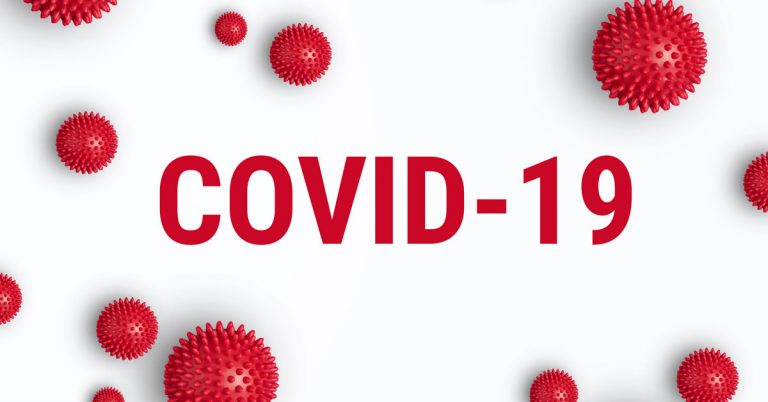COVID-19 has succeeded in bringing much of the world to a screeching halt. There have been over 44 million reported cases, with over 1.6 million deaths worldwide. It has also decimated economies as a result of the shutdowns and restrictions on certain activities.
The world’s leading drug manufacturers and researchers are attempting to create a vaccine that will allow us to return to normal. Unlike the development of most vaccines, world leaders have pressed to get a vaccine fast.
There are several COVID-19 vaccine trials in various phases going on right now. What types of vaccine categories are being tested and how would they work?
We go over some of the most promising candidates.
A Look at the Types of Vaccine Categories
There are several COVID-19 vaccine categories. Each type works in different ways. In some cases, different drugs are being combined to create a new vaccine. Here are the basic types of vaccines and how they work.
Inactivated Vaccine
This treatment starts by killing a whole virus. The inactivated version is then used to create a vaccine. This allows your body’s immune system to recognize and kill the virus when it sees it. There are many medicines that use this approach, including the polio vaccine.
Sub-unit Vaccine
This method uses a piece of the virus, such as a protein, to create a vaccine. Hepatitis and human papillomavirus (HPV) vaccines use this approach.
Weakened, Live Viral Vaccine
Here the virus is grown in a lab. The virus eventually becomes better at growing in the lab, making it less capable of reproducing in people. The measles, mumps, rubella, and chickenpox vaccines all use this method.
Replicating Viral Vector Vaccine
This method uses a virus that doesn’t result in a disease in people – it’s called a virus vector. A new gene code is then created in the virus vector. Most of the potential COVID-19 vaccines use a coronavirus spike protein.
The spike protein attaches to the virus vector and then it reproduces in the cells. This causes the immune system to create antibodies to the COVID-19 spike protein.
Researchers created the Ebola vaccine using this method.
FDA Fast Track Testing
The FDA Fast Track process works to help with the testing and review of possible vaccines and new drugs.
A drug must meet certain qualifications to be fast-tracked. Above all, it must be for a disease that has no current therapy. It must also show advantages over similar therapies or vaccines.
Several potential COVID-19 vaccines have been “fast-tracked”.
Promising Drugs Under Trial
Let’s take a look at some of the drugs that are being developed. Many of these are in Phase 3 vaccine trials. Phase 3 means that thousands of people can take the drug in a controlled environment.
AZD1222 (AstraZeneca-Oxford)
This is a replication-deficient viral vector vaccine. It uses an adenovirus from a chimpanzee. Preliminary testing has shown an “acceptable safety profile”, with all patients showing a positive response after two doses.
CoronaVac (Sinovac)
This drug is an inactivated vaccine. So far, the various trials appear to show it is safe with older trial participants. No serious adverse effects have been reported.
JNJ-78436735 (Johnson & Johnson)
This is a non-replicating viral vector vaccine. Johnson & Johnson plans to enroll up to 60,000 people in a Phase 3 trial. According to releases, a single injection seems to show “robust neutralization antibody responses and provided complete…protection”.
mRNA-1273 (Moderna)
This is an mRNA-based vaccine. It’s based on studies of similar coronaviruses like SARS and MERS.
mRNA vaccines work by training the body to recognize the proteins attached to a virus. Unlike vaccines that use inactivated doses of the virus, mRNA drugs trick your body into producing viral proteins on its own. This helps your immune system fight off infection.
According to Moderna, the vaccine showed “neutralizing activity and limited inflammation” in mice. It’s been fast-tracked for Phase 3 trials. Moderna Co-Founder Kenneth Chien sees much hope for an effective COVID-19 vaccine in the near future.
NVX-CoV2373 (Novavax)
This is a nanoparticle vaccine. Early phase trials showed that participants who received multiple doses had a favorable safety profile. The company plans to manufacture 1 billion doses by 2021.
The drug is now in Phase 3 trials in the U.K. with 10,000 participants involved in the study.
Bacillus Calmette-Guerin (University of Melbourne & Murdoch Children’s Research Institute)
This vaccine was originally created to prevent tuberculosis (TB) in people who have a higher risk. It works by boosting the immune system to fight infections.
The Phase 3 trial is being conducted with over 4,000 healthcare workers in hospitals in Australia. There is another Phase 3 trial in the Netherlands, with around 1,500 healthcare workers.
BNT162 (Pfizer/BioNTech)
This drug is another mRNA-based vaccine. Pfizer and BioNTech received FDA Fast Track designation for two vaccines, BNT162b1 and BNT162b2. The latter will now advance to Phase 2 and 3 trials as it had a better immune response and better tolerability.
The companies asked the FDA to allow an expanded protocol with 44,000 participants in a Phase 3 trial. If effective, that would mean the vaccine could be ready for use as soon as December.
Covaxin (Bharat Biotech)
This Indian biotechnology company is partnering with the National Institute of Virology to develop an inactivated vaccine. In Phase 1, rhesus macaques took the vaccine. A study showed an “increase in neutralizing antibodies and reduced viral replication”.
It was also tested on a small group of fifty people. The results were encouraging. Covaxin is entering Phase 2 trials now.
Finally, Some Promising News About COVID-19
There is a reason to hope that we will have effective and safe types of vaccines for COVID-19 soon. Some of the brightest minds are working hard to create possible candidates. With the Fast Track process, we could have a drug quicker than you might have guessed.
Looking for other “hopeful” news? Be sure to check out our site for other positive stories about health/medicine, science, technology, and world news.


0 Comments